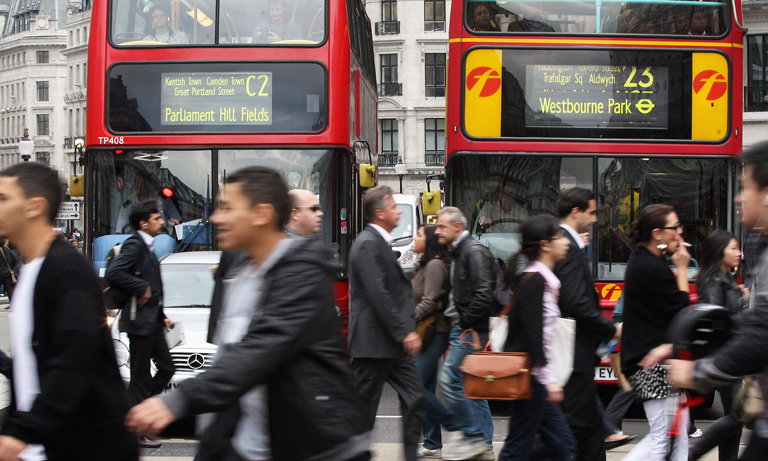 What’s certain is that nothing is going to stand still, unless it’s the queue of cars in front of you!
What’s certain is that nothing is going to stand still, unless it’s the queue of cars in front of you!Train travel costs continue to rise, but in many ways, travel has gone full circle; our cities are clogged with cars and many councils are trying to encourage us to leave our cars at home by introducing congestion charges and cycling-friendly initiatives.
Companies like Uber have revolutionised how we get across cities, and increasingly, our cars run on electricity rather than petrol. There’s even talk of cars that drive themselves hitting the mainstream.
Commutes by their very nature are changing as more employers are allowing and even encouraging employees to work flexibly and remotely, so what does the future hold?
Biking will still be big
Whether you own your own bicycle, or you take advantage of a bike-share programme like the Boris Bikes, more of us are ditching four wheels in favour of two. There are significant investments going into cycle lanes and infrastructure for bikes, including where to leave them, so biking is becoming increasingly easy and user-friendly.
Sharing is caring
Lift sharing is continuing to grow in popularity and many employers facilitate schemes, matching similar routes together. It’s more flexible in many respects than public transport because the journey can start at any time and isn’t dependent on a timetable. Building a relationship with the lift share companion can have other benefits, to our mental health for example, and can be a great option in more rural areas where public transport is less flexible.
Cars will continue to change
We’ve heard of self-driving cars, even talk of flying cars, and certainly, there have been huge advances in the fuel-efficiency and environmental impact of cars. All manufacturers are working on autonomous models, incorporating new technology, and some are much closer to getting one to market than others. Cars will need to have sensors to get that right, and many people are concerned about the impact of cars being able to watch them.
And if not ‘watch’ exactly, technology will collect more data about us. Count how many dashcams you see on your next journey and you’ll get an idea of how quickly this is changing. Monitors might keep track of speed, for example.
You might consider that we already have something very close to a flying car already in the form of helicopters, though aside from the prohibitive cost of buying and running one, helicopters would create a significant noise pollution.
Another major consideration for manufacturers is that there is a significant number of consumers who are fundamentally frightened of flying. They would rather sit on the ground in a traffic jam than take to the skies.
What’s certain is that nothing is going to stand still, unless it’s the queue of cars in front of you!








